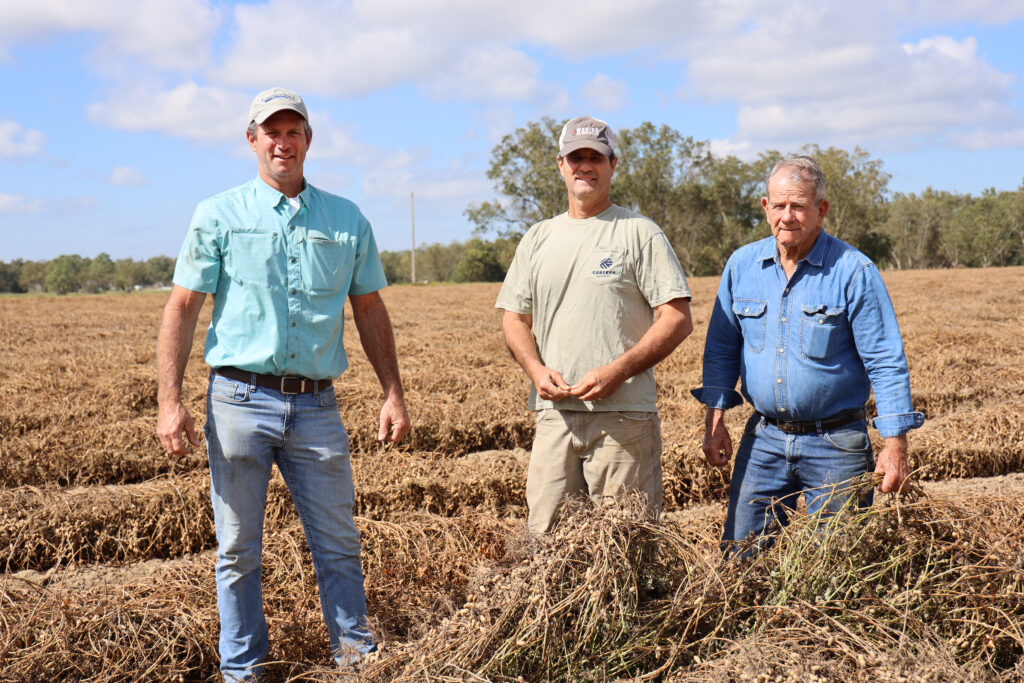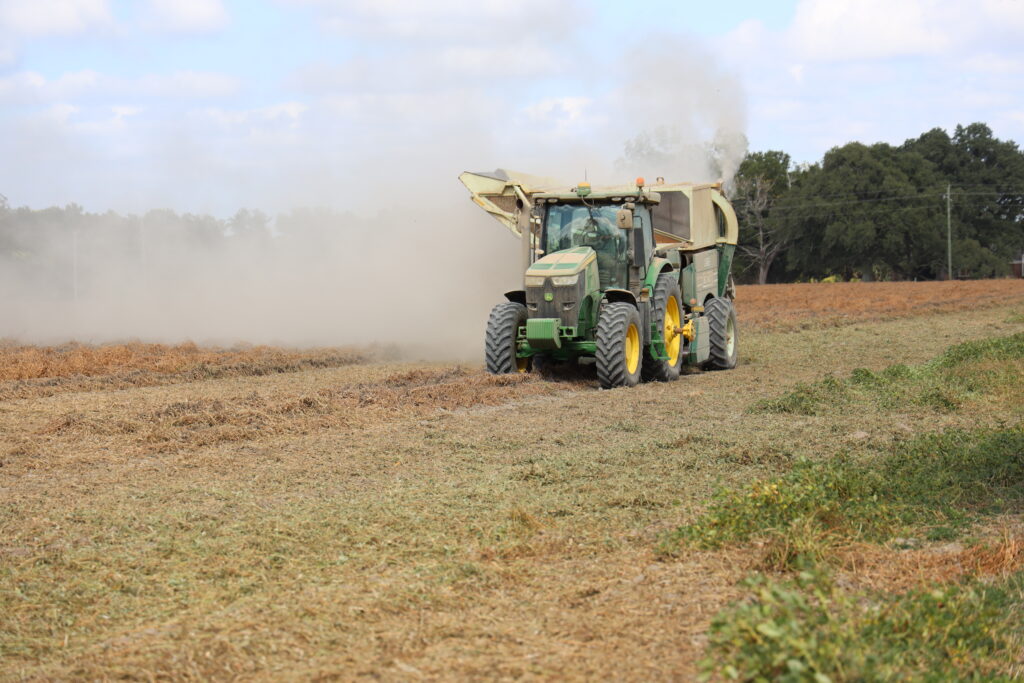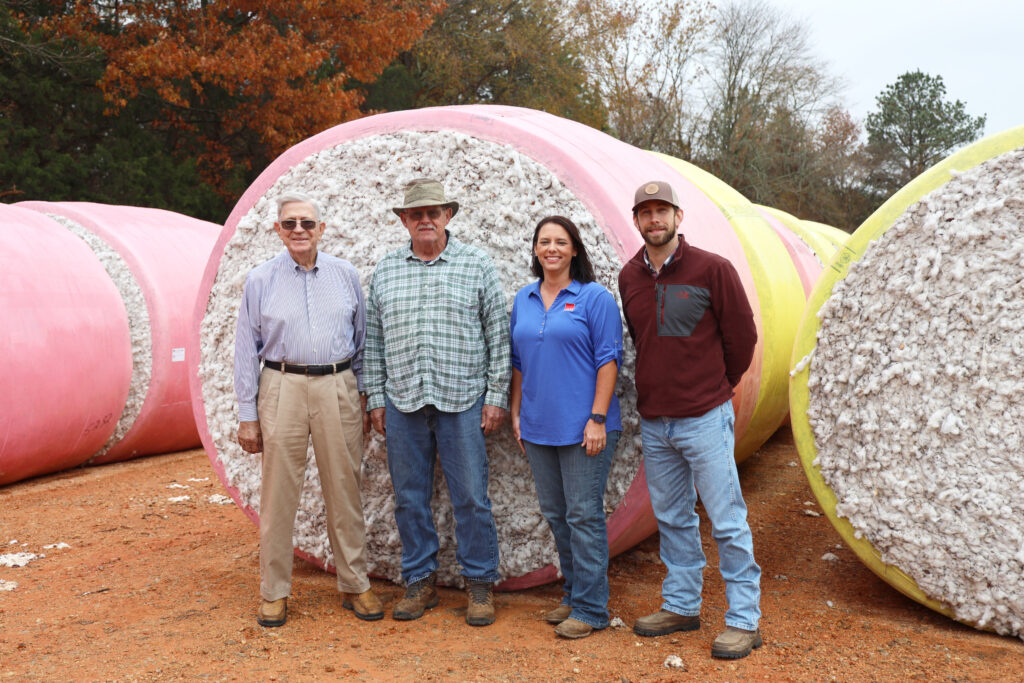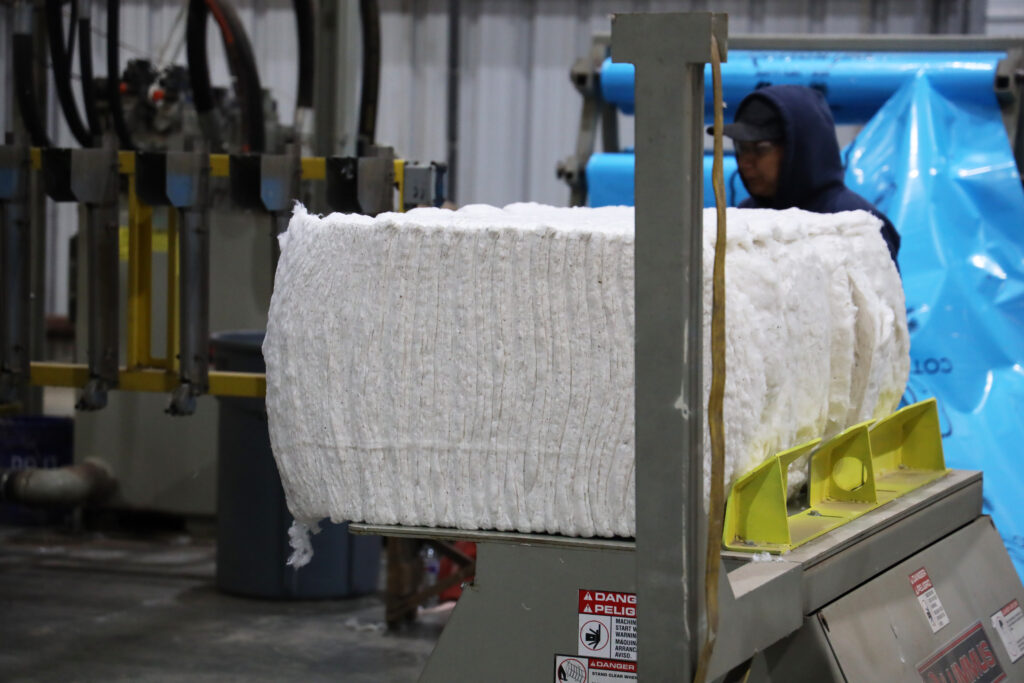Alabama Farmers Overcome Adversity during Harvest
By Maggie Edwards
Harvest season brought a whirl of emotions for Alabama farmers — as some celebrated their best yields, while others endured the impact of late-season drought.
“Corn will be our only really good crop this year,” said Baldwin County’s Eric Street, who operates Street Farm with brother Tobin. “We had a hard struggle getting our corn planted. The first field froze during late March, and then it wouldn’t stop raining in our part of the county. I had to replant one corn field three times.”
Weather patterns settled soon after the continuous rain, and the Streets planted cotton and peanuts. They harvested wheat, too, before rain returned.
“June got here, and we went through more weeks of endless rain, which slowed our soybean planting,” said Eric, who serves on the Alabama Farmers Federation State Soybean Committee. “Soon after our last seed went into the ground, the rain shut off. From the end of June until now (October), we haven’t had any good rainfall.”

While lack of rain can be an obstacle for crop growth, it also allows farmers to get in their fields and work, Eric said.
“The dry weather helped us get our spraying done and the corn harvested,” Eric said. “This is the first time in 10 years I didn’t get rained out during my corn harvest.”
Eric estimates their fields are 10-15 inches deficient from normal rainfall.
“To have been abused by dry weather, the peanuts are pretty,” Eric said. “But they aren’t perfect. We spray for diseases, but if the chemical doesn’t get rain, it doesn’t work properly.”
On a good year, they harvest about 2 million pounds of peanuts, said Tobin.
“Peanut yields and prices are low because of the drought,” Tobin said. “A typical peanut yield is a 5,400-pound average, but this year, we will be lucky to make 4,000 pounds an acre.”
In a year where farmers are battling rising interest rates amid a fluctuating economy, the pocketbook strain is tough, said Federation Commodity Director Carla Hornady.
“Things were unpredictable for farmers this year,” said Hornady, who works with cotton, soybean and wheat and feed grain farmers. “Rainfall really depended on where you were, so yields are all over the place. I’ve heard some farmers are opting out of winter wheat because of the lack of rain. We say this every year, but it’s true: Farming is challenging, but we have to stay optimistic for next year.”

To help track drought conditions — and potentially trigger disaster assistance — Hornady suggests farmers use the Condition Monitoring Observer Reports system to self-report local drought.
Even with its struggles, the current weather pattern has benefits, Eric said.
“The dry weather has been devastating for the crops and the growing season,” Eric said. “I’d rather dig peanuts in dry weather any day over wet. I will celebrate dry weather for harvest every time.”
Eric, Tobin and wife Laura, along with patriarch William, farm 1,500 acres of row crops including cotton, corn, soybeans, peanuts, wheat, oats and hay. This year, the farm averaged 200 bushels of corn per acre. Eric estimates cotton will be 30% less than normal, with peanuts down 25% and soybeans about 20-30% down from average yields.

While the Streets have faced adversity this season, the Isbells in Colbert County are reaping benefits of a great cotton crop.
That’s the difference in weather conditions 360 miles apart.
“We’ve made the best cotton crop of all time, and I’ve been farming 54 years,” said Neal Isbell of Isbell Farms. “Our beans and wheat were just average, and corn was a pretty good crop.”
Isbell Farms got enough rain to make a good corn crop but needed more rain toward the end of their bean season, Neal said.
“Our beans came up short because we didn’t have the moisture,” said Neal, who serves on the Alabama Cotton Commission. “We made a good cotton crop. It was thanks to the good Lord.”
Farming is all about timing and water, said Neal’s father, Hollis.
“We’ve been working and increasing our irrigation system,” Hollis said. “There has never been a year when there wasn’t a return to irrigation. Sometime during the year, you will need it. We are 30% irrigated. This is the difference between a great crop and an average crop.”

Corn yields for Isbell Farms averaged 250 bushels per acre on irrigated land and 190 bushels per acre on dry land.
Off the farm, the Isbells operate Cotton Producers Co-op Inc., founded in 1996. There, the farm is facing another challenge as an early harvest triggered an early ginning season.
“One of our biggest challenges is labor,” Neal said. “Prices and marketing are tough, too.”
Farming has risks, but passion and faith drive farmers from the Tennessee Valley to the Gulf Coast as they feed the world, Hornady said.
Eric agreed.
“We have been blessed in my 34 crops on this farm,” Eric said. “We’ve made money on the farm every year for 20 years. It’s not always about what’s happening today, this week or this month. I look back at how good it’s been. God has blessed us more than I ever dreamed of. We look at our family’s history and know that God blessed them during the hard times. He will bless us, too.”
